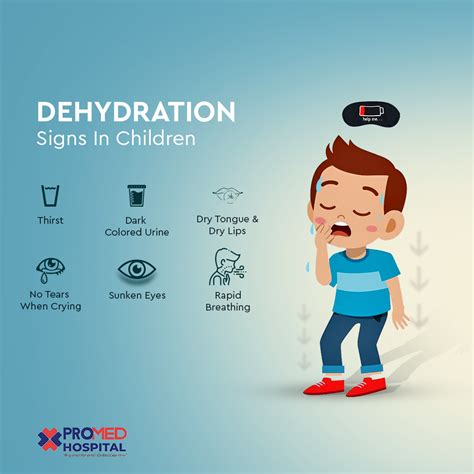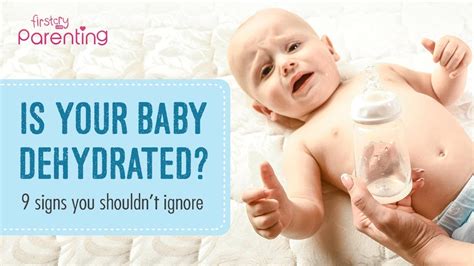Intro
Recognize 7 signs of dehydration in babies, including dry mouth, fewer wet diapers, and sunken eyes. Learn infant dehydration symptoms, treatment, and prevention methods to keep your baby hydrated and healthy.
Dehydration in babies is a serious condition that can lead to severe complications if not addressed promptly. It is essential for parents and caregivers to recognize the signs of dehydration in babies to provide timely intervention. Dehydration occurs when the body loses more fluids than it takes in, causing an imbalance in the body's water and electrolyte levels. In babies, dehydration can be caused by various factors, including diarrhea, vomiting, fever, and not breastfeeding or bottle-feeding adequately.
Babies are more susceptible to dehydration due to their small body size and developing kidneys, which are not efficient at concentrating urine. Moreover, babies may not be able to communicate their needs effectively, making it crucial for caregivers to be vigilant and monitor their behavior and physical condition closely. Recognizing the signs of dehydration in babies can help prevent severe dehydration, which can lead to seizures, brain damage, and even death.
Dehydration in babies can be classified into three stages: mild, moderate, and severe. Mild dehydration may not exhibit noticeable symptoms, while moderate dehydration can cause significant discomfort and distress. Severe dehydration is a life-threatening condition that requires immediate medical attention. It is vital to be aware of the signs of dehydration in babies to prevent progression to severe dehydration. By understanding the causes, symptoms, and treatment options, caregivers can take proactive steps to ensure their baby's health and well-being.
Introduction to Dehydration in Babies

Signs of Dehydration in Babies

Causes of Dehydration in Babies
Dehydration in babies can be caused by various factors, including: * Gastrointestinal infections * Fever * Inadequate fluid intake * Vomiting * Diarrhea * Environmental factors, such as high temperatures and humidityTreatment Options for Dehydration in Babies

Prevention of Dehydration in Babies
Preventing dehydration in babies is crucial to ensure their health and well-being. Here are some tips to prevent dehydration in babies: * Breastfeed or bottle-feed regularly * Offer an oral rehydration solution, such as Pedialyte, if the baby is vomiting or has diarrhea * Monitor the baby's urine output and stool frequency * Keep the baby in a cool, well-ventilated environment * Avoid giving the baby plain water, as it can lead to an imbalance of electrolytesComplications of Dehydration in Babies

When to Seek Medical Attention
It is essential to seek medical attention if the baby exhibits any of the following symptoms: * Vomiting or diarrhea that lasts for more than 24 hours * Fever above 100.4°F (38°C) * Decreased urine output * Dark yellow or brown urine * Lethargy or irritability * Sunken eyes or soft spot on the top of the headConclusion and Next Steps

We invite you to share your thoughts and concerns about dehydration in babies in the comments section below. Your input can help other caregivers and parents who may be experiencing similar challenges. Additionally, if you found this article helpful, please share it with your friends and family to help raise awareness about the importance of preventing dehydration in babies.
What are the common causes of dehydration in babies?
+Dehydration in babies can be caused by various factors, including gastrointestinal infections, fever, and inadequate fluid intake.
How can I prevent dehydration in my baby?
+Preventing dehydration in babies involves breastfeeding or bottle-feeding regularly, offering an oral rehydration solution, such as Pedialyte, if the baby is vomiting or has diarrhea, and monitoring the baby's urine output and stool frequency.
When should I seek medical attention if I suspect my baby is dehydrated?
+It is essential to seek medical attention if the baby exhibits any of the following symptoms: vomiting or diarrhea that lasts for more than 24 hours, fever above 100.4°F (38°C), decreased urine output, dark yellow or brown urine, lethargy or irritability, or sunken eyes or soft spot on the top of the head.
